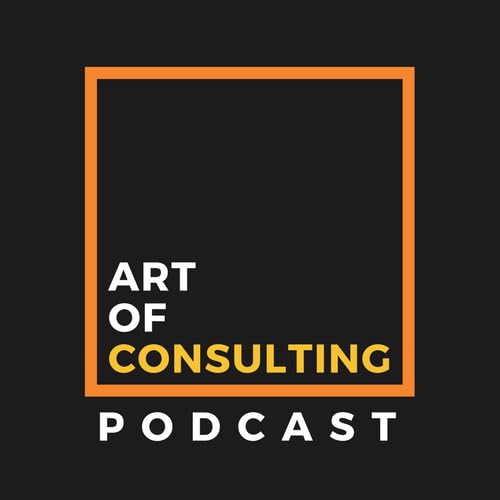Power Moves: Inside Energy Innovation and Consulting with Ashton Fox
In this episode, Cat sits down with Ashton Fox, President of Onix Energy, to explore how consulting and executive leadership are reshaping the future of energy. With an impressive career spanning renewable energy, natural gas, and electricity supply, Ashton brings a wealth of experience on scaling organizations, transforming business models, and leading companies through high-stakes change.
Ashton shares how he helped transform a negative-revenue startup into a $150M powerhouse, scaled solar and renewable operations across new markets, and shifted an energy supplier from 10% to 100% renewables. But beyond the numbers, he dives into what it really takes to be a transformational leader: building trust, managing culture during rapid growth, and creating sustainable strategies that last.
Key Insights You'll Learn -
Energy Leadership: How Ashton navigated the transition from fossil fuels to renewables while maintaining profitability and growth.
-
Scaling with Purpose: Lessons on expanding a company's footprint from one market to six while multiplying revenue by 15x.
-
The Consulting Mindset: Why consulting skills are crucial for energy executives — from solving complex problems to guiding strategic pivots.
-
Sustainability in Action: How to implement efficiency programs that save clients 25% on energy costs while driving impact.
-
Executive Lessons: Ashton's take on building recurring revenue streams, transforming company culture, and positioning businesses for long-term success.
This conversation is a must-listen for consultants, executives, and anyone interested in how innovation, leadership, and consulting expertise intersect in one of the world's most important industries.
🌐 Official Podcast Title Power Moves: Inside Energy Innovation and Consulting with Ashton Fox
🔗 Where to Find our Guest What Guest is Promoting: https://onixenergy.com/
LinkedIn: https://www.linkedin.com/in/ashtonfox1/
👤 Guest Bio – Ashton Fox Ashton Fox is a visionary C-Suite executive with extensive experience in strategic leadership, enterprise transformation, and organizational growth in the renewable energy sector. As the former CEO of a solar EPC company and COO of a natural gas and electricity supplier, Ashton has a proven track record of scaling organizations, driving market expansion, and delivering exceptional shareholder value.
During his tenure at the energy supply company, Ashton transformed the organization from a negative revenue startup to an entity with $150M in assets, expanded its footprint from one market to six, and increased the customer base and revenue by 15x. He pioneered the company's transition from 10% to 100% renewable energy sources and developed comprehensive energy efficiency programs resulting in average customer savings of 25%.
At the solar EPC company, Ashton led strategic growth and market expansion, scaling the sales organization by 50% while maintaining profitability and establishing strategic partnerships with key equipment suppliers.
Currently, Ashton is the President of Onix Energy, where he focuses on energy procurement and specialized sustainability programs for commercial clients. He also provides executive-level consulting services to renewable energy and cleantech organizations, focusing on strategic growth initiatives, operational excellence, and market expansion strategies. He specializes in transforming traditional energy companies into renewable energy leaders while establishing recurring revenue streams and optimizing financial performance.
 Nov 27 202517 mins
Nov 27 202517 mins 17 mins
17 mins 15 mins
15 mins 50 mins
50 mins Oct 9 202548 mins
Oct 9 202548 mins Oct 2 202539 mins
Oct 2 202539 mins 53 mins
53 mins 15 mins
15 mins
